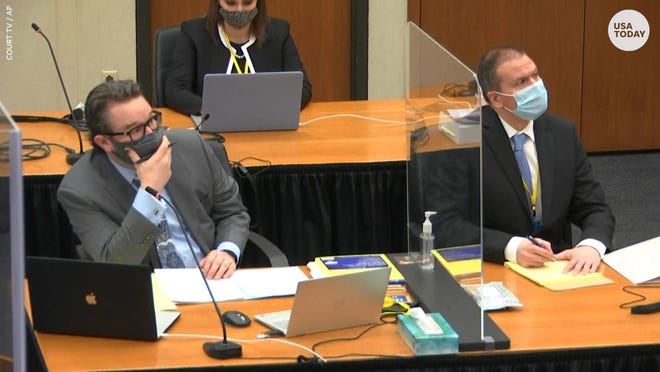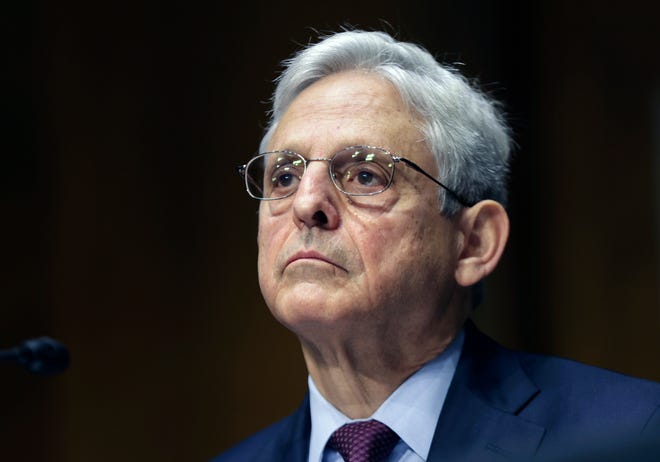
National columnist Suzette Hackney is in Minneapolis for the trial of Derek Chauvin, reporting on the people, the scene and the mood.
Former Minneapolis police officer Derek Chauvin sits day after day in a Hennepin County courtroom, listening to testimony and writing on a legal pad. His note-taking is constant.
I wish I knew what he was writing. Chauvin is apparently on an island, with only his defense attorneys. There is a chair reserved in the courtroom for his friends and family. Most days, no one sits there.
By contrast, members of George Floyd's family take turns daily sitting in the one allotted seat reserved for them in the back corner of the courtroom. Only two reporters are in the courtroom, one pool representative from a print organization and one from broadcast.

Chauvin is accused of killing Floyd last May, kneeling on his neck for more than nine minutes while trying to arrest him. The trial, which has concluded its second week, is being televised because of crowd restrictions due to COVID-19 precautions.
The trial has been difficult to stomach. The constant replaying of the video from different angles; the graphic nature and descriptions of how Floyd died; the emotional testimony from those who witnessed the incident – it's all traumatizing.
Maybe too traumatizing for those who love Chauvin. Imagine how Floyd's family feels.
Chauvin's wife filed for divorce just days after Floyd's death, according to a May 29,2020 statement from the Sekula Family Law office.
“This evening, I spoke with Kellie Chauvin and her family. She is devastated by Mr. Floyd’s death and her utmost sympathy lies with his family, with his loved ones and with everyone who is grieving this tragedy. She has filed for dissolution of her marriage to Derek Chauvin,” the statement said. “While Ms. Chauvin has no children from her current marriage, she respectfully requests that her children, her elder parents, and her extended family be given safety and privacy during this difficult time.”
George Floyd's death:Former gang members inspired to help the local neighborhood

On Monday, Minneapolis Police Chief Medaria Arrondondo testified that Chauvin continuing to kneel on Floyd's neck once he was handcuffed, lying face-down and not showing signs of resistance was "in no way, shape or form" department policy or training, "and it is certainly not part of our ethics or our values."
Chauvin, 45, is charged with second-degree murder, third-degree murder and second-degree manslaughter.
National columnist Suzette Hackney is a member of USA TODAY’S Editorial Board. Contact her at [email protected] or on Twitter: @suzyscribe









